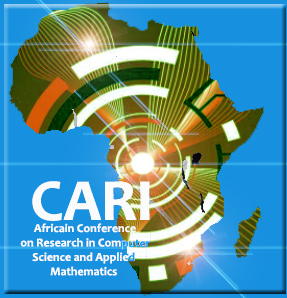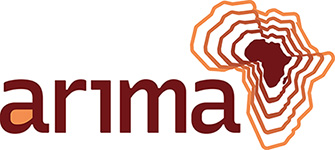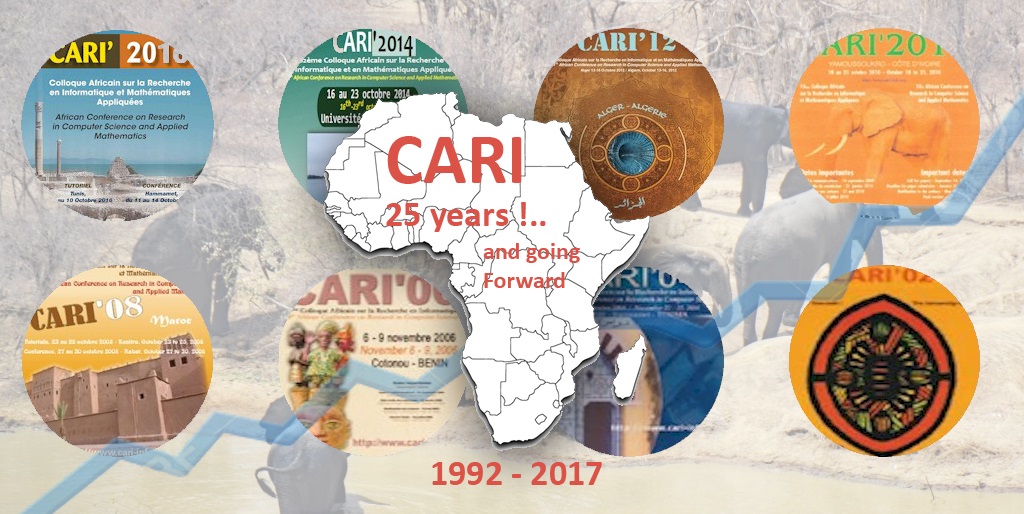CARI, 33 years in Bridging the Skills Gap in Computing and Applied Mathematics to Foster African Development
CARI, the African Conference on Research in Computer Science and Applied Mathematics, is organised under the auspices of ASDS (African Society in Digital Science) in partnership with the Institut National de Recherche en Informatique et en Automatique (Inria), the Institut de Recherche pour le Développement (IRD), and the Centre de coopération Internationale en Recherche Agronomique pour le Développement (CIRAD).
CARI is a dynamic framework for cooperation, aimed at breaking down isolation and strengthening the African scientific community. All this activity relies on the strong and effective action of many actors. All CARI-related activities are listed on the official CARI website Cari-info. The organisation of the conferences is under the responsibility of the local organising committee.
The African Conference on Research in Computer Science and Applied Mathematics (CARI) has established itself as a leading platform for scientific excellence in Africa and beyond. Over the years, CARI has successfully fostered high-level research collaborations, resulting in a growing number of high-quality papers published in internationally renowned outlets, including Springer-Verlag. This achievement reflects both the rigor of the peer-review process and the scientific maturity of contributions presented at the conference, consolidating CARI’s reputation as a hub of innovation and academic excellence in the fields of computer science and applied mathematics.
Topics are, but not limited to the following fields in Computer sciences: Edge, Fog and Cloud Computing Systems, Internet of Things (IoT), Cyber-Physical Systems (CPS), Blockchain Technology, Safety and Correctness of Concurrent and Distributed Systems, Network Privacy and Security, National Information Security, Big Data and Data Science, Machine Learning and Artificial Intelligence Systems, Large) Model Languages, Natural Language Processing, Information Search and Retrieval, Knowledge Engineering, Ontologies and Semantics, Multi-agent Systems, Mobile and Wireless Networking, Service-Oriented Systems, Applications: Resource Management (energy, water, air quality, waste management, …), Healthcare, Transportation, Smart Grids, Education, Social Networks, Agriculture, Smart Cities, E-Government, …
In Applied Mathematics Track : Topics in this track include, but not limited to the following fields: Analysis of Dynamical Systems, Partial Partial Differential Equations, Numerical Analysis, Optimization, Stochastic
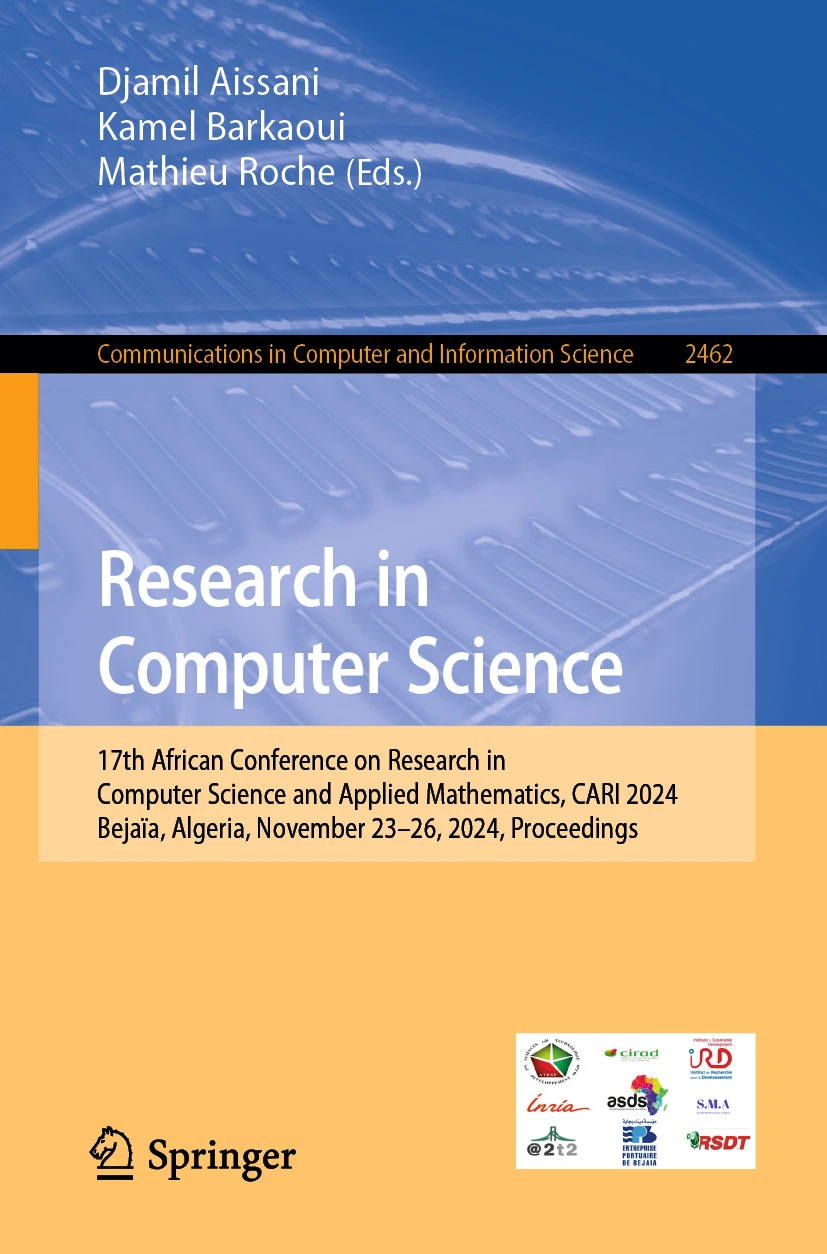
Systems, Applied Statistics and Probability, Image and Signal Processing, Mathematics and Machine Learning, High Performance Scientific Computation, Mathematical Modelling, Mathematical Finance, Actuarial Science and Economy, Earth Sciences and Environment, Mathematical Biology, Ecology and Medicine…
Discovering ARIMA, the referential Journal of scientific cooperation
Revue Africaine de Recherche en Informatique et Mathématiques Appliquées: ARIMA Journal is a result of scientific cooperation between Africa and northen countries that has taken place since the earlies 1990’s in the framework of CARI (the African Conference for the Research in Computer Science and Applied Mathematics). It is a channel for disseminating the results of this cooperation. The scientific area of the Journal includes all research topics in Computer Science and Applied Mathematics. Particular encouragement is directed to results coming from collaboration between Africa and Northern countries or results that were entirely obtained in Africa. ARIMA is a publication of the African Society for Digital Sciences, a scholarly society that brings together the community of African and diaspora researchers in computer science and applied mathematics as well as their partners in research organizations in the North (Inria, IRD, Cirad, INRAE
CARI'2026 next stop BENIN ?Twenty years later full of progress...
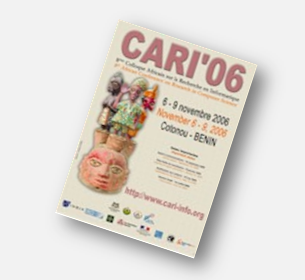
Benin exhibits growing capacity in higher education for computer science and applied mathematics, courtesy of strong university programs, international recognition, and local expertise. Yet substantial gaps remain in foundational educational infrastructure, equitable digital access, and nationwide competition structures. Strategic leadership in teacher training, technology integration, and policy investment could unlock its fuller potential.
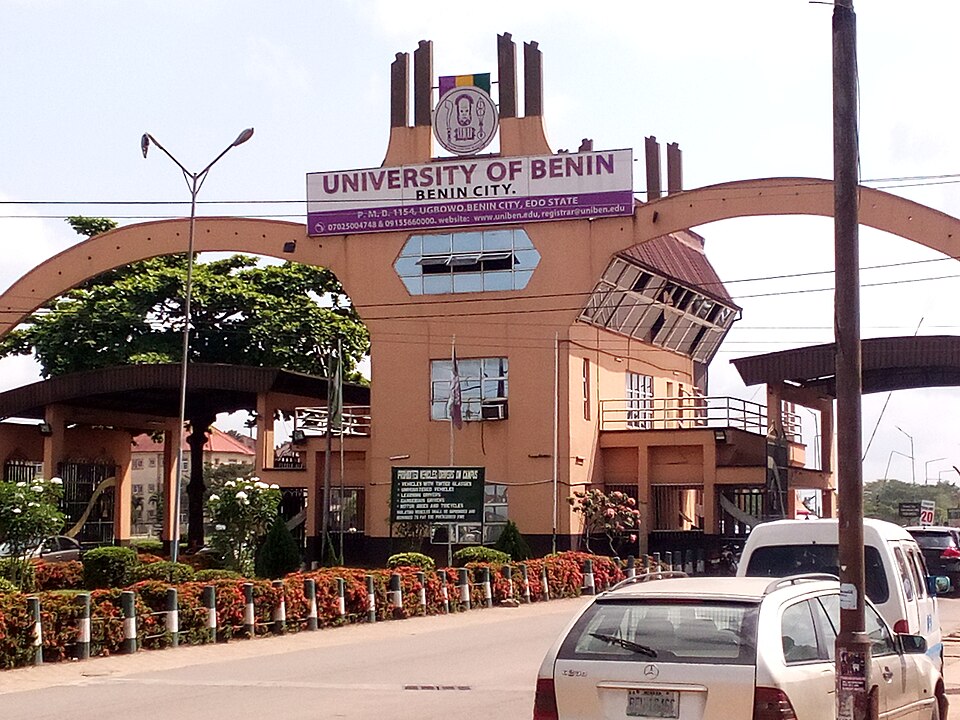
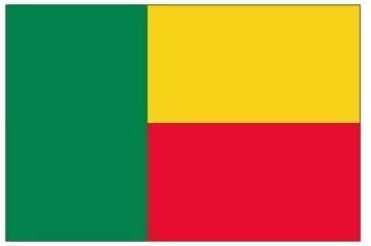
Over the long run, CARI has stood as a testament to the many investments made by visionary scientists to foster high-level research in computer science and applied mathematics across Africa, honoring the dedicated people who have shaped its legacy. Discover the event occured during the first 25 years and who made the CARI
Site under reconstruction after hack
